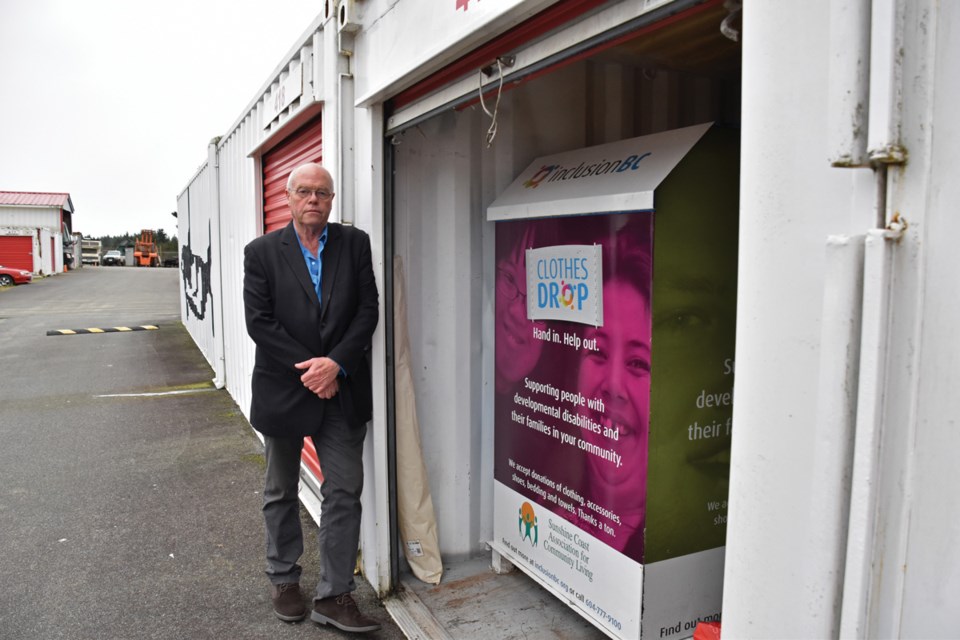Clothing donation bins have been inspected, locked and in some cases removed on the Sunshine Coast as part of a widespread response to an incident on Dec. 30, when a man became trapped and died in one in West Vancouver.
That includes the three donation bins operated by the Sunshine Coast Association for Community Living (SCACL). Those bins were located in Gibsons, Wilson Creek and Sechelt. They were removed and placed in a storage facility on Jan. 3.
The bins were ordered by SCACL from Inclusion BC, a disability awareness non-profit that owned the bin involved in last Sunday’s fatality.
“The bins are removed now and they won’t be re-installed until there’s a thorough investigation,” said Glen McClughan, executive director for SCACL. “I would never put them out again until I’m satisfied and the public is satisfied that they’re safe.”
Inclusion BC also put out a release on Jan. 3 following an emergency meeting where it and its member agencies decided to pull 146 bins located in Greater Vancouver, Fraser Valley, the Interior, Vancouver Island and the Sunshine Coast. “We will continue to work with our bin manufacturer, municipal authorities, design experts and community partners to formalize and promote the adoption of industry-wide safety standards to keep our communities safe,” stated the release.
The clothing drop recycling program, which is overseen by Inclusion BC, generated about $15,000 annually for SCACL. McClughan said he wants the program to continue and that people can drop off bagged clothing at the group’s location on Mermaid Street in Sechelt. They can also call the supported works department to have items picked up. “We really want to sustain the program,” he said. “The bigger question for me is why do we have people that need to try to get into clothing bins? Why aren’t those people being served better?”
Other organizations on the Sunshine Coast have also locked their bins, including the donation bin at the Salvation Army’s Gibsons location and the donation box at the Healthcare Auxiliary Thrift Store in Sechelt, which locked its bin temporarily.
The Salvation Army’s design is similar to Inclusion BC’s bins, according to Maj. Glen Fraser, who said the bins are checked daily. Fraser said the loss of the donation bin will affect operations but that “nothing is worth losing their life over.” Patrons can still donate household items and clothes to the Sechelt and Gibsons locations during business hours. The Sechelt location is closed, however, and will remain so likely until the week of Jan. 14 due to a staffing shortage.
The Healthcare Auxiliary thrift store in Sechelt has a wooden donation bin manufactured by a local carpenter. The bin was closed temporarily but an informal inspection was conducted and it was deemed safe, according to Karen Noon, chair of the thrift store. “It doesn’t snap shut, it’s not metal. We are confident our bin is fine,” she told Coast Reporter.
The Dec. 30 death of the 34-year-old man was followed by another death on Jan. 8 in Toronto. A woman, also in her thirties, was found trapped in a bin in Toronto’s west end, bringing the number of donation bin fatalities in Canada to eight, of which five occurred in B.C.



